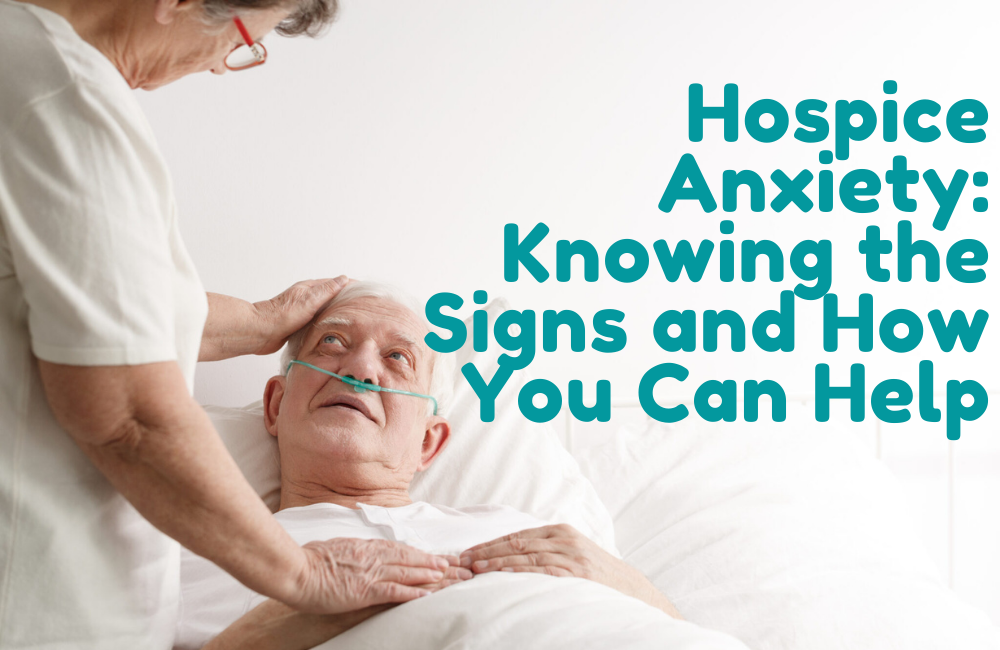Anxiety is a typical symptom among people on the verge of death. Some people may suffer moderate anxiety, while others may develop full-blown panic episodes. Anxiety must be addressed as soon as possible, regardless of the reason.
It’s natural to be afraid, sad, and concerned about death and the dying process. This is because individuals are dealing with something they’ve never had to deal with before. However, the process is more straightforward with the support of loved ones and the presence of clinical practitioners who can reaffirm whatever the patient is going through and provide management to help ease disturbing emotions.
Signs and Symptoms of Hospice Anxiety
Researchers believe that pain and physiological changes in the body, rather than actual resentment toward others around them, are the main drivers of hospice anxiety. On the opposite end of the range, aggressive behavior or calm, sluggish conduct are the key signs to look out for.
The following symptoms describe hospice anxiety:
- Inconsistent or unusual decisions or actions
- Dementia.
- The persistent tugging of clothing, bed linens, IV lines, and even their skin, which can lead to scab formation.
- Indecisiveness, a continual search for goods they believe they’ve misplaced, or continually asking for something only to reject it
- Nonsensical accusations
- Episodes of restlessness
- Aversion to intimacy
- Mentioning loved ones or family members who have passed away
Hospice Anxiety Management
The first thing you should do if your loved one begins to display indications of anxiety is to attempt to calm him down. Simple distractions can sometimes be enough to decrease tension and keep them quiet. Try talking about something other than their sickness or symptoms, like the recent lottery winnings or the new neighbors who just moved in.
Simple anxiety-relieving therapies that may be done at home include:
1. Introduce Distractions
Use caution here, as people nearing the end of their lives will suffer legitimate anxiety that must be recognized rather than just replaced with new ideas.
2. Practice Breathing Techniques
The benefits of attentive breathing are immeasurable. The simple act of collecting your breath and allowing your expiration (breathing out) to be longer than your inhale can help you relax by increasing the activity of your vagus nerve.
3. Do Some Naming Games
Simple naming games, such as identifying five items in the room that you can see, four things you can feel, three things you can hear, and so on. These help the patient stay anchored in the present moment, which is typically not as daunting as the mind makes it out to be. Anxiety naturally diminishes as we become more present.
4. Anxiety Medications
To alleviate anxiety and its adverse effects, doctors may prescribe a variety of medicines. Benzodiazepines and antidepressants are the two most prevalent types of anxiety medicines. Benzodiazepine medications can help you halt a panic attack or other severe anxiety symptoms in their tracks. Patients use these medicines on an as-needed basis to relieve severe anxiety symptoms.
Whether the anxiety subsides or worsens, it’s critical to contact your treating physician to report the condition and seek medical help.
Conclusion
Patients may also reduce their worry by having talks and making decisions about their end-of-life care. Patients may feel better and at ease with their circumstances after finalizing preparations and reaching closure with loved ones. This might include completing a will, arranging funeral plans, or signing a DNR. Patients may also compose letters to leave behind or seek visits from loved ones.
While the inevitable will come sooner or later, you can make the process more relaxing and meaningful. Bridge Home Health & Hospice has a team of licensed and trained clinicians and therapists that provides compassionate homecare services. Get in touch today to learn more!

